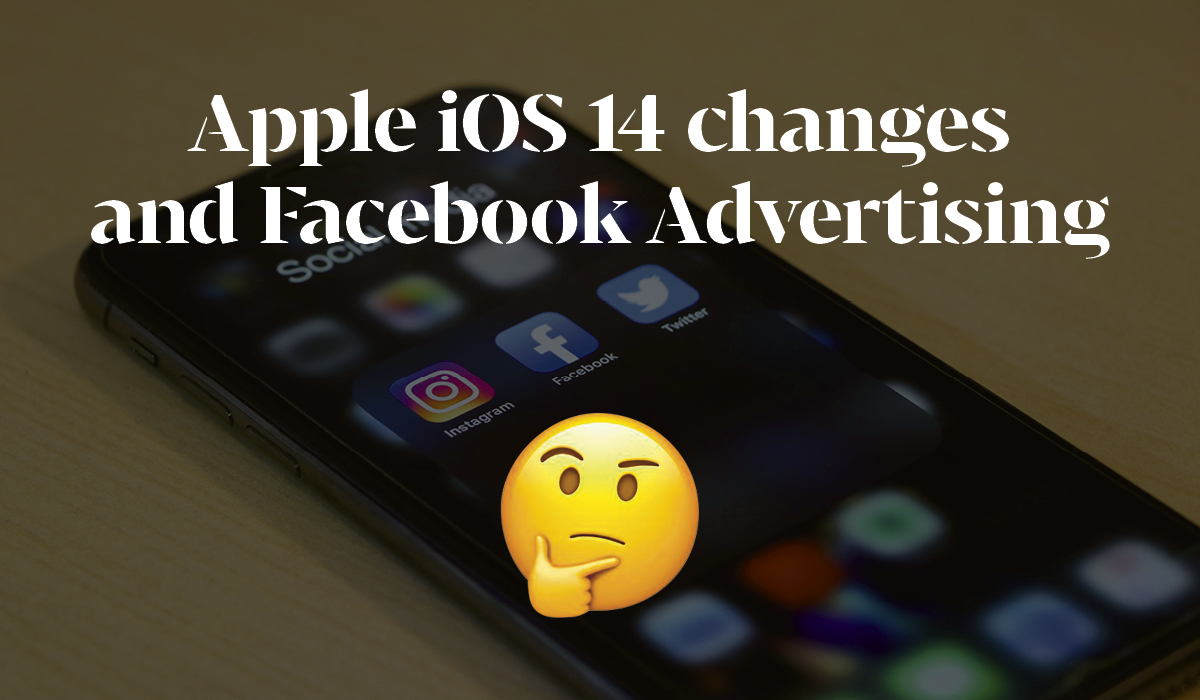Intro:
If you are an iPhone user, you may have noticed that these days when you use an App, a pop-up of whether to allow this app to track your activity or not will show up. This is due to Apple’s new privacy policy updated with iOS 14 which gives iPhone users the control to disallow data-tracking by third-party networks.
This is boom news for ad networks like Facebook and their advertisers who rely on this user data. With users choosing “opt-out” of being tracked, leaving major blind spots in performance data, hindering the ability to target, limiting data sets off, Facebook advertising performance would be affected deeply. Facebook ad is a major method dropshippers use to draw traffic to the store, this privacy update could throw a wrench in your dropshipping market strategy.

Four effects iOS 14 made on Facebook ads
1. Impact on Audiences
When Apple users opt-out of data tracking, they’ll be basically impossible to track and add to re-targeting audiences which means your retargeting audiences and results will start to shrink. This is going to seriously affect how effective your dropshipping ads can be with re-marketing and re-targeting on Facebook and Instagram.
2. Ad Event Limits
Advertisers can only configure up to 8 unique conversion events per website domain that can be used for campaign optimization. Ad sets optimizing for a conversion event that's not one of the 8 events you’ve selected for optimization will be paused. This limit includes both standard pixel events and custom conversions, and will not allow for events like page view or custom events.
3. Domain Verification Required
Advertisers will have to “verify” each domain they plan on driving ads to through their Facebook Business Settings. Verifying a domain basically lets Facebook know you actually have control over your website or domain. By installing a few lines of code in your site’s back-end, you let Facebook know you’re actually the one holding the keys to your site.
4. Attribution Changes
Several attribution windows will no longer be supported (including 28-day click-through, 28-day view-through, and 7-day view-through), and the new default will be a simple 7-day click-through attribution. Getting a full picture of your user journey will be much more difficult because of this change. A lot of the data Facebook uses for reporting will be based on statistical models.
![]()
Strategy Adjustment
When it comes to Facebook ads, there are a few easy strategies you can implement to make sure your strategies stay strong through the iOS 14 roll-out:
1. Prioritize your Events & Conversions
Be more decisive when it comes to which events you’ll be tracking and optimizing your ad campaigns for since there are only 8 pixel events to choose from. It’s time to decide which are most important, and which will provide the biggest benefit.
2. Straighten out your domains
Make sure your domains are verified and properly connected to your Facebook Ad accounts. If you can’t verify your domains or currently use more than 8 conversion events per domain, you should consider optimizing for upper-funnel optimizations like landing page views. Landing page views aren’t subject to the 8 conversion events per domain limitation.
3. Change your audience building strategy
If you’ve been relying on a Facebook pixel to build retargeting audiences for your ad campaigns, now is the time to reconsider your strategy. There are a few alternatives of your Facebook pixel, like Custom Audiences (uploaded from your existing customer lists), Lookalike Audiences (based on your Custom Audiences or your engaged fans on Facebook).
4. Self-exam your reporting metrics
All advertisers are going to see declines in metrics such as conversions and event completions as a result of the iOS 14 privacy changes. But that doesn’t mean your ads aren’t working, you just need to rethink the way you interpret the results.
Are the changes of iOS 14 really bad for dropshipping business?
The answer here is “NO”.
First of all, activity-tracking is used to deliver personalized content, people who opt-out may notice their content-feed become less and less relevant over time. There definitely will be users reverse their decision and re-enable tracking to improve their experience on the apps they use. So what the real long-term opt-in ratio will be is still up in the air.
Secondly, dropshippers need to accept the fact that individualized tracking is going to a closure. Customers nowadays are more concerned about their privacy than ever. You simply can’t fight the tide turning against data-tracking. The sooner dropshippers can adjust to broader, more cohort-focused marketing, the better.

.jpg)